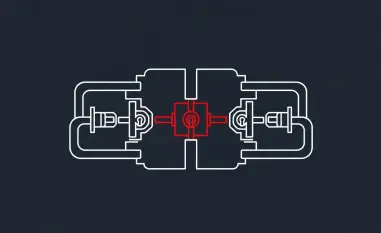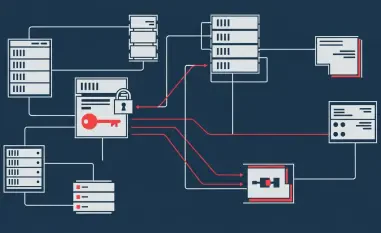Kicking off 2025 with a focus on cybersecurity, Juniper Networks has released critical security updates aimed at addressing several high-severity vulnerabilities within the Junos OS platform. These latest updates aim to bolster the security infrastructure of systems operating Junos OS and Junos OS Evolved, ensuring a more robust defense against potential cyber threats. Among the most significant issues addressed are vulnerabilities that could lead to denial-of-service (DoS) attacks and other security breaches.
Key Vulnerabilities Addressed
One of the primary vulnerabilities addressed in this update is an out-of-bounds read flaw in the routing protocol daemon (RPD), identified as CVE-2025-21598. This particular vulnerability has the potential to result in a DoS attack when it processes malformed BGP packets, especially affecting systems with packet receive trace options enabled. The issue is particularly concerning because it can spread through multiple Autonomous Systems (ASes), impacting devices that are vulnerable to this flaw. As a workaround, users are advised to disable packet tracing options and monitor for malformed update messages in neighboring, unaffected devices within other ASes.
Another critical flaw addressed is CVE-2025-21599, which affects the Juniper Tunnel Driver (JTD) of Junos OS Evolved. This vulnerability can be exploited over the network without any need for authentication, leading to a DoS condition by exhausting kernel memory through malformed IPv6 packets. Such an exploitation can cause system crashes, necessitating immediate attention and action to mitigate potential attacks.
Additional Security Fixes
In addition to the above-mentioned critical vulnerabilities, Juniper Networks has also addressed two high-severity vulnerabilities in OpenSSH that are used in both Junos OS and Junos OS Evolved. The vulnerabilities, known as CVE-2024-6387 (regreSSHion) and CVE-2024-39894, further emphasize the necessity for comprehensive security measures. The updates include patches for almost 60 flaws in third-party components of Junos Space 24.1R2, with critical issues found in the Expat XML parser library also being resolved. Furthermore, Juniper Networks has fixed medium-severity bugs that could lead to DoS conditions or the disclosure of sensitive information.
While none of these vulnerabilities have been reported as being actively exploited in the wild, Juniper Networks has urged users to apply these patches without delay. The proactive approach in issuing these updates highlights the company’s commitment to safeguarding its systems and providing protection against emerging threats. Users can find more detailed information regarding these vulnerabilities on Juniper Networks’ security advisories page.
Importance of Timely Updates and Vigilant Monitoring
To start 2025 on a strong note in cybersecurity, Juniper Networks has rolled out crucial security updates designed to rectify several high-severity vulnerabilities found within the Junos OS platform. These updates are intended to strengthen the security framework of systems running Junos OS and Junos OS Evolved, providing a more formidable defense against potential cyber threats. The primary focus of these updates includes addressing vulnerabilities that could potentially lead to denial-of-service (DoS) attacks and other severe security breaches.
Juniper Networks recognized the urgent need to enhance the resilience of their systems against these growing threats, focusing on both the detection and prevention of malicious activities. The timely release of these updates highlights Juniper’s commitment to maintaining the integrity of their platforms and ensuring their customers can rely on robust and secure network solutions. By mitigating these high-severity vulnerabilities, Juniper aims to reduce the risk exposure and ensure that their networks remain secure and dependable amidst an increasingly volatile cyber threat landscape.













